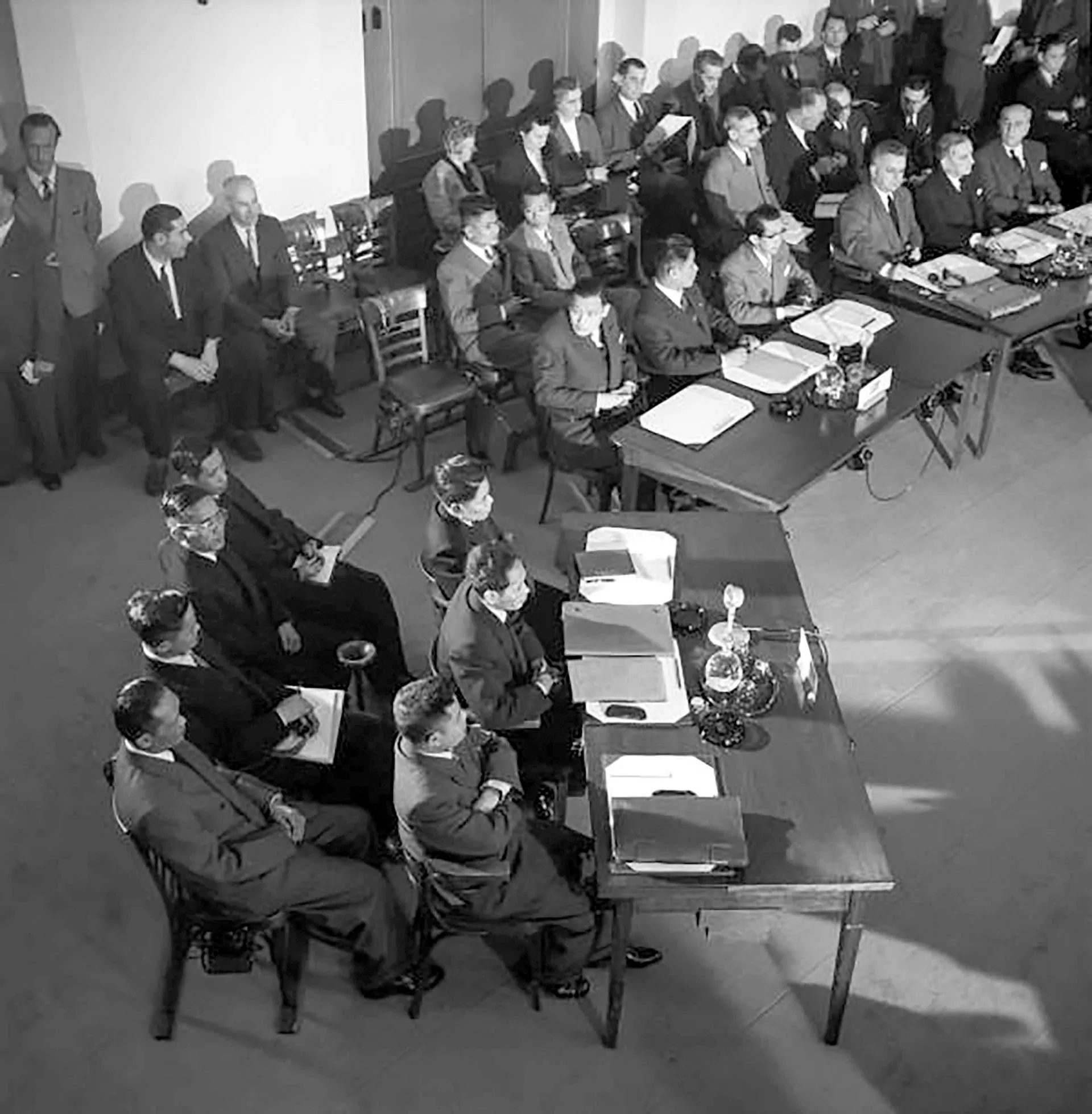 |
| Delegation of the Democratic Republic of Vietnam at the 1954 Geneva Conference. (Photo courtesy) |
Geneva Conference
In 1953 and 1954, both the Soviet Union and China adjusted their foreign policies, promoting East-West détente. France declared its desire to negotiate to resolve the Indochina issue. Uncle Ho said: “Korea has shown us that we must fight until the imperialists are defeated, then we will negotiate… Don’t have any illusions” [1]. Besides efforts on the battlefield, France advocated an international conference including the US, UK, France, the Soviet Union and China to resolve the Indochina issue.
In November 1953, in an interview with Expressen (Sweden) about the situation of the Indochina war and the discussion of the French National Assembly wanting to settle peace with Vietnam, President Ho Chi Minh clearly stated the stance of our Government: "If the French Government has learned a lesson from the war of the past few years and wants to reach a ceasefire in Vietnam by negotiating and resolving the Vietnam issue peacefully, then the people and Government of the Democratic Republic of Vietnam are ready to accept that wish... The basis of the ceasefire in Vietnam is that the French Government sincerely respects the true independence of Vietnam" [2].
He also made clear the principle: “…If any neutral country wants to try to promote the end of the war in Vietnam, it will be welcomed, but the negotiation of a ceasefire is mainly a matter between the Government of the Democratic Republic of Vietnam and the French Government” [3].
On February 18, 1954, the foreign ministers of the four countries: the Soviet Union, the United States, Great Britain, and France agreed to convene the Geneva Conference from April 26, 1954 to discuss the issue of ceasefire in Korea and the restoration of peace in Indochina with the participation of China and some related countries. When agreeing on the meeting on Indochina, some major countries considered the solution of dividing Vietnam. France and the United States still hoped to win military victory on the battlefield.
On May 8, 1954, one day after our victory at Dien Bien Phu, the Geneva Conference on Indochina officially opened. The US was forced to participate but still threatened military intervention. Britain and France agreed to enter into a solution but still wanted to use the US to force the Soviet Union and China to make concessions. Britain and France had separate contacts with the Soviet Union and China. As for Britain and the US, during their visit to the US from June 24-29, 1954, the two sides agreed to send a 7-point message to France: agreeing to divide Vietnam at the 17th parallel, the US declared that it would not sign and would not be bound by the agreement.
On July 15, 1954, at the 6th Central Party Conference (Session II), Uncle Ho stated: “Previously, our slogan was: “Resistance to the end”. Now, because of the new situation, we need a new slogan: “Peace, unity, independence, democracy”. To fight against the US imperialists’ direct intervention, prolonging and expanding the Indochina war, we must firmly grasp the flag of peace…When using the way of speaking, we must make appropriate concessions” [4]. Uncle Ho also pointed out the principle of concessions, the directions for adjusting the military concentration areas… and emphasized: “Currently, the US imperialists are the main enemy of the people of the world and they are becoming the main enemy of the people of Indochina…” [5] These are the guiding principles for our delegation to negotiate in Geneva.
On July 21, 1954, the Geneva Agreement was signed; France had to end its war of aggression, withdraw its troops, and recognize Vietnam's independence, sovereignty, unity, and territorial integrity; Vietnam was temporarily divided; free general elections would be held to unify the country.
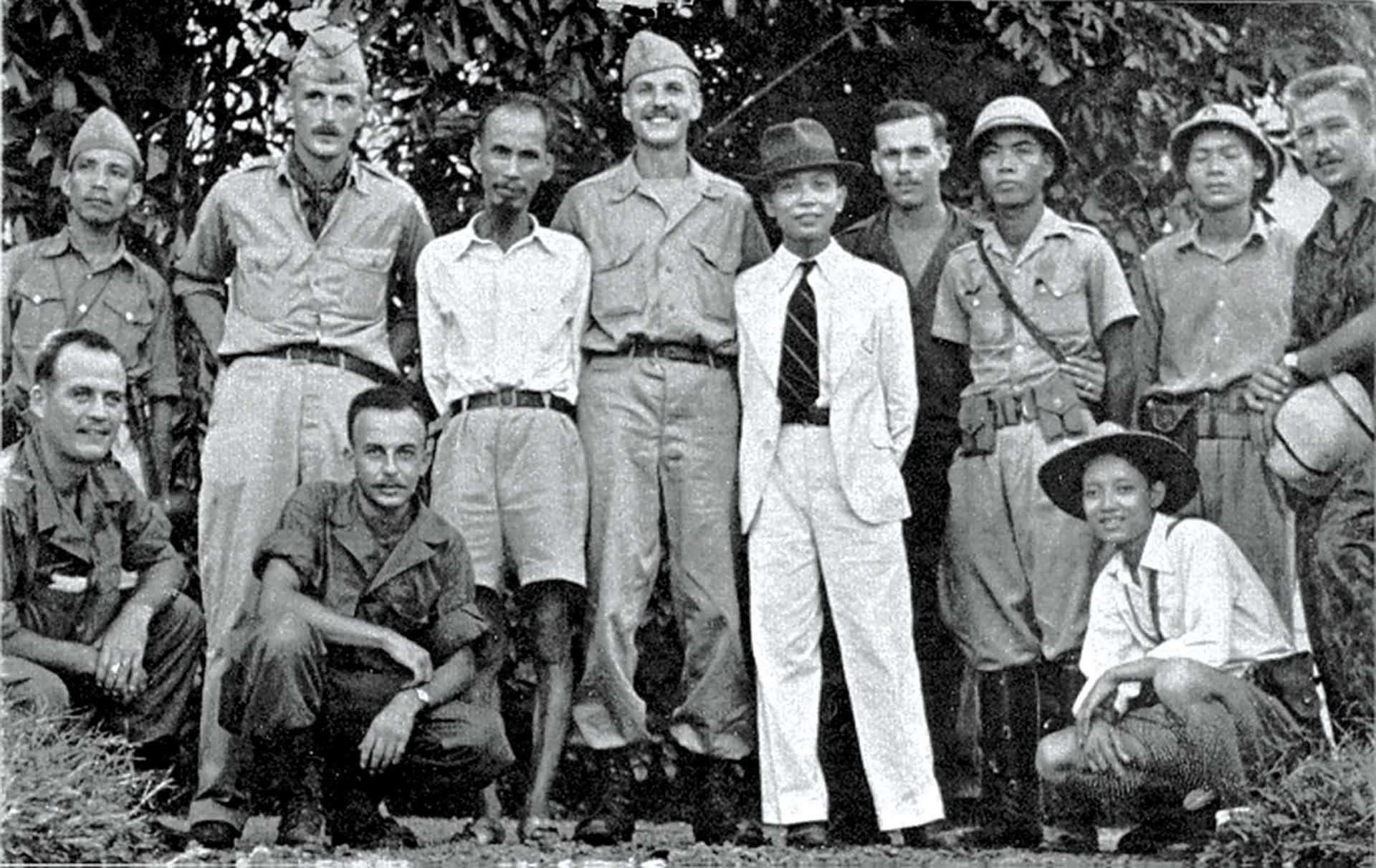 |
| President Ho Chi Minh, General Vo Nguyen Giap and some members of the American “Deer” team, April 1945. (Source: National Archives and Records Administration, USA) |
Paris Conference
In November 1966, the Politburo issued a Resolution: "Strengthening military and political struggles in the South", which included the following orientation: "While strengthening military and political struggles at home, it is necessary to attack the enemy on a new front by strengthening international political and diplomatic struggles... applying the strategy of fighting while negotiating, negotiating while fighting...".
In January 1967, the 13th Central Conference, which focused on diplomatic struggle, issued a resolution stating: “Military and political struggle in the South are the main factors that determine victory on the battlefield and are the basis for victory on the diplomatic front.” Chairing the conference, Uncle Ho said: “Diplomacy in Geneva was victorious because Dien Bien Phu was victorious. It is the same now, when we win big, diplomacy wins a lot. It is not just in our country but in any country. Of course, diplomacy is very important, but the main thing is that we must win and we must have strength, then diplomacy will win.”
On February 8, 1967, US President Lyndon B. Johnson sent a letter to Uncle Ho saying: “…I am ready to order an end to the bombing of your country and to stop sending more US troops to South Vietnam as soon as I am assured that the infiltration into South Vietnam by land and water has ended…”. On February 15, 1967, in a reply letter, Uncle Ho categorically rejected: “…The US government has caused a war of aggression in Vietnam, so the path to peace in Vietnam is for the US to end its aggression.”
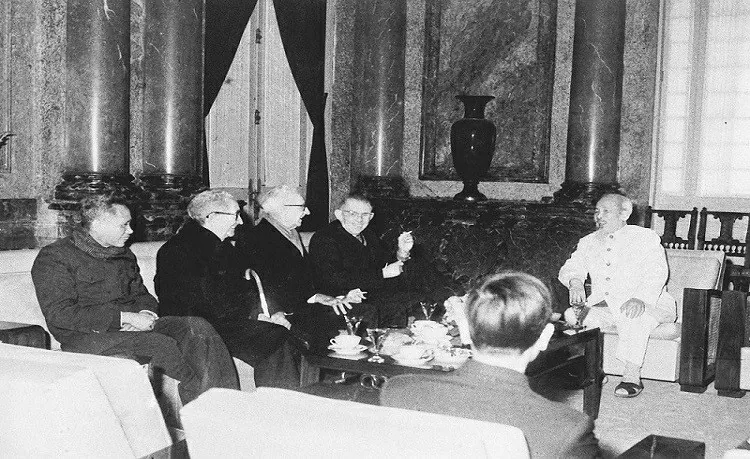 |
| Uncle Ho met with anti-war American intellectuals in Hanoi, January 17, 1967. (Photo courtesy) |
In the fall of 1967, we and the US began secret contacts, but there was no progress because the US side negotiated from a position of strength, forcing us to accept their conditions. We maintained our stance: the US had to stop bombing before we could talk. During the Tet Offensive of 1968, we launched a general offensive and uprising simultaneously, changing the situation on the battlefield, defeating the US's will to invade. On March 31, 1968, Lyndon B. Johnson had to declare a halt to bombing the North from the 20th parallel, accept sending US representatives to negotiate with us, and not run for another term. Before the US side's proposal for negotiation, Uncle Ho and our Party Central Committee carefully considered three options: completely reject, completely accept, and partially accept. Finally, we chose option three.
On May 7, 1968, we sent a delegation to Paris. On May 13, 1968, the two-sided conference between the Democratic Republic of Vietnam and the United States officially held its first session. Regarding the composition of our delegation, Uncle Ho proposed to appoint comrade Le Duc Tho as an advisor and signed a decree appointing comrade Xuan Thuy as Minister of the Government to be the Head of the negotiating delegation. Uncle Ho personally wrote a letter to the Politburo informing comrade Le Duc Tho to hand over the work to comrade Pham Hung, then went to Hanoi to go to Paris to negotiate with the United States [6]. Uncle Ho instructed to send military advisors to join the delegation to help the delegation monitor the war situation and to coordinate the struggle at the conference table; instructed that negotiations with the United States must be cautious and persistent, steadfast but clever, and that we must closely monitor the domestic situation, especially the war situation, and take advantage of public opinion from the world, the American people, the French people, and overseas Vietnamese.
Every day, following the developments of the conference, Uncle Ho reminded us to expose the deceitful arguments of the US and its lackeys, and to propagate a lot about the Front's delegation. He received international delegations, gave interviews, wrote letters, wrote articles, and called on compatriots in the country and the people of the world. During meetings with the Politburo to discuss the struggle with the US at the Paris negotiation table, Uncle Ho often gave very specific instructions, from considering the domestic and foreign affairs of the Provisional Revolutionary Government of the Republic of South Vietnam, to clearly stating the policy to the comrades in the South and in Paris.
On October 1, 1968, the US had to stop bombing and shelling the North. Uncle Ho held a Politburo meeting to discuss the diplomatic struggle at the Paris Conference and on November 3, 1968, he made an appeal to the people and soldiers of the whole country: “The sacred task of all our people at this time is to raise the spirit of determination to fight and win, determined to liberate the South, protect the North, and move towards peaceful reunification of the Fatherland. As long as there is an invader in our country, we must continue to fight and wipe him out.”
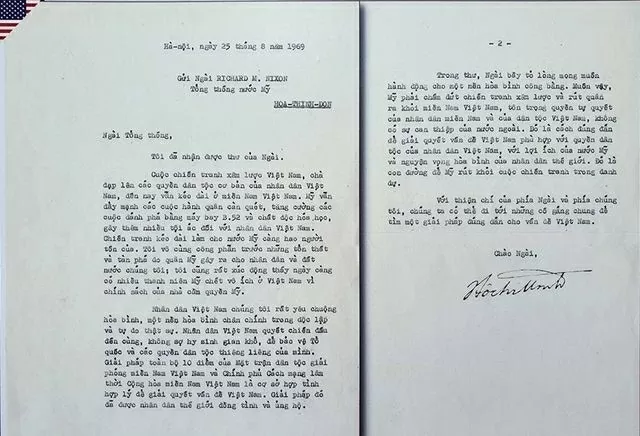 |
| Uncle Ho's letter to US President Richard Nixon on August 25, 1969. (Photo) |
On the occasion of the New Year of 1969, in his New Year's poem, Uncle Ho clearly pointed out the strategy to liberate the South and unify the country: "...Fight to drive out the Americans, fight to overthrow the puppets". On the occasion of the Lunar New Year of the Rooster 1969, in his New Year's message to his colleagues working in Paris, Uncle Ho asked about and encouraged everyone in the two delegations and also the French friends. In early August 1969, when comrade Le Duc Tho and our delegation returned from Paris and had not yet had time to report to Uncle Ho as usual, Uncle Ho went to the West Lake Guesthouse to visit comrade Le Duc Tho. The comrades serving Uncle Ho recounted that on that day, Uncle Ho was weak and it was raining, so they did not want Uncle Ho to know that the delegation from Paris had returned, but when Uncle Ho found out, he insisted on going to see him [7].
A week before his death, on August 25, 1969, Uncle Ho still sent a letter in response to the letter of July 15, 1969 from US President Richard Nixon. In the letter, Uncle Ho clearly stated: if the US wanted to act for a fair peace, then: "The US must end the war of aggression and withdraw its troops from South Vietnam, respect the right to self-determination of the people of South Vietnam and of the Vietnamese nation, without foreign interference" [8].
In conclusion
During the important periods and major events of Vietnam's diplomacy from 1945 to 1973, President Ho Chi Minh held an extremely special position. As the Party's foremost leader, he directly carried out high-level diplomatic activities and led and directed foreign affairs activities.
During the period of 1945-1946, directly implementing diplomatic techniques with Chiang and France, Uncle Ho drove away 200,000 Chiang troops, delayed the French attack in the south and landed in the north, maintained the revolutionary government and gained valuable time to prepare for the resistance war against France.
Although he did not directly participate in the Geneva Conference and the Paris Conference, Uncle Ho was the chief engineer, directly directing everything from selecting personnel for the negotiating team, to determining goals and principles, planning diplomatic attack campaigns... leading to the final victory.
[1] Ho Chi Minh Complete Works, ST Publishing House, 1985, volume 6, pp. 438-439.
[2] https://baochinhphu.vn/bac-ho-voi-hiep-dinh-geneva-102167289.htm
[3] Party documents on the resistance war against French colonialism, ST Publishing House, 1988, volume II, pp. 320-321
[4] Ho Chi Minh National Academy of Politics, Party historical documents, volume 8, p.177
[5] Ho Chi Minh Complete Works, ST Publishing House, 1988, volume 6, p. 589
[6] https://baoquocte.vn/bac-ho-tong-cong-trinh-su-hoi-nghi-paris-213711.html#google_vignette
[7] https://bqllang.gov.vn/tin-tuc/tin-tong-hop/996-ch-t-ch-h-chi-minh-vihi-ngh-paris-v-vi-t-nam.html
[8] Ho Chi Minh Chronicle, ST Publishing House, 2016, volume 10, p.332
Source: https://baoquocte.vn/bac-ho-voi-ngoai-giao-nhung-quyet-sach-trong-thoi-diem-sinh-tu-cua-dan-toc-ky-ii-320317.html



![[Photo] Solemn opening of the 1st Government Party Congress](https://vphoto.vietnam.vn/thumb/1200x675/vietnam/resource/IMAGE/2025/10/13/1760337945186_ndo_br_img-0787-jpg.webp)

![[Photo] General Secretary To Lam attends the opening of the 1st Government Party Congress](https://vphoto.vietnam.vn/thumb/1200x675/vietnam/resource/IMAGE/2025/10/13/1760321055249_ndo_br_cover-9284-jpg.webp)


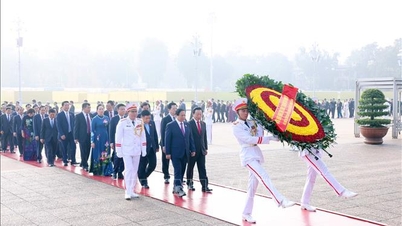

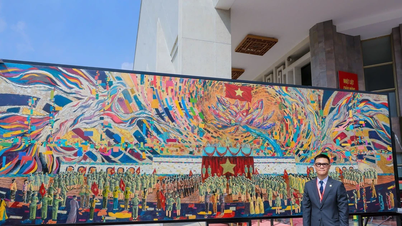


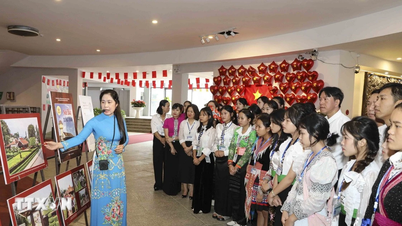
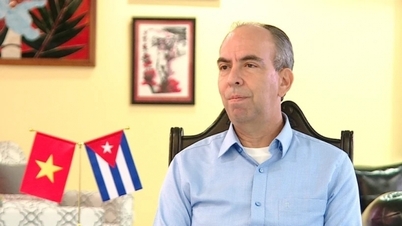
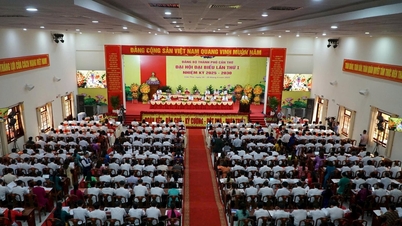

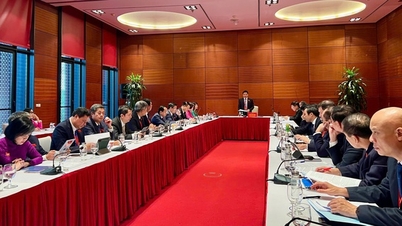

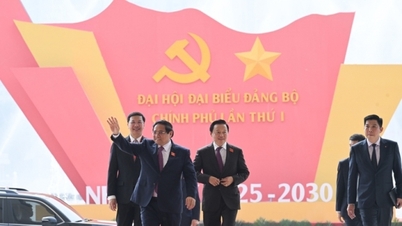
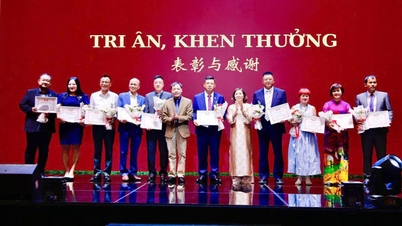

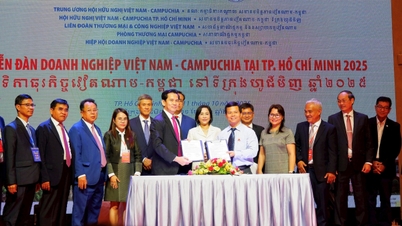
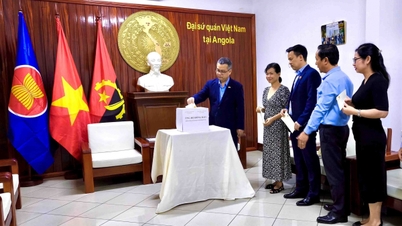
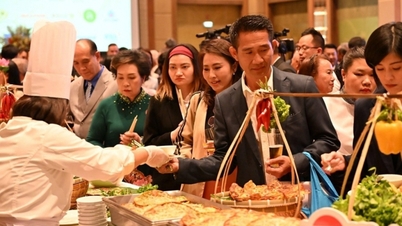




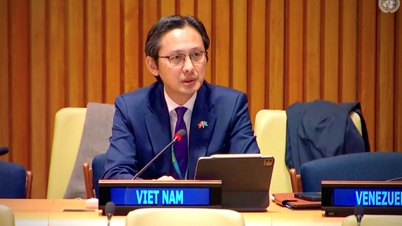
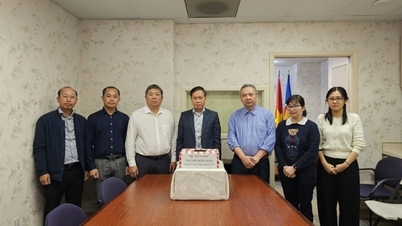



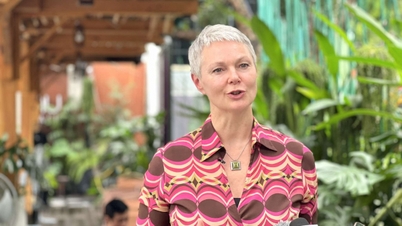
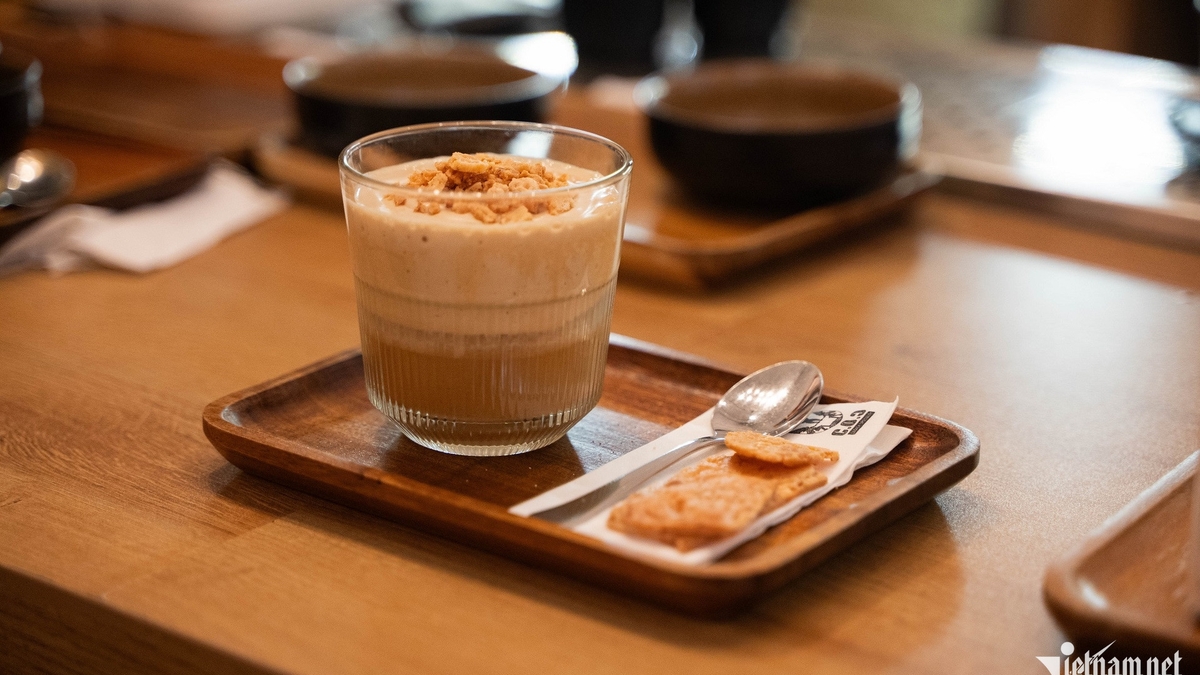
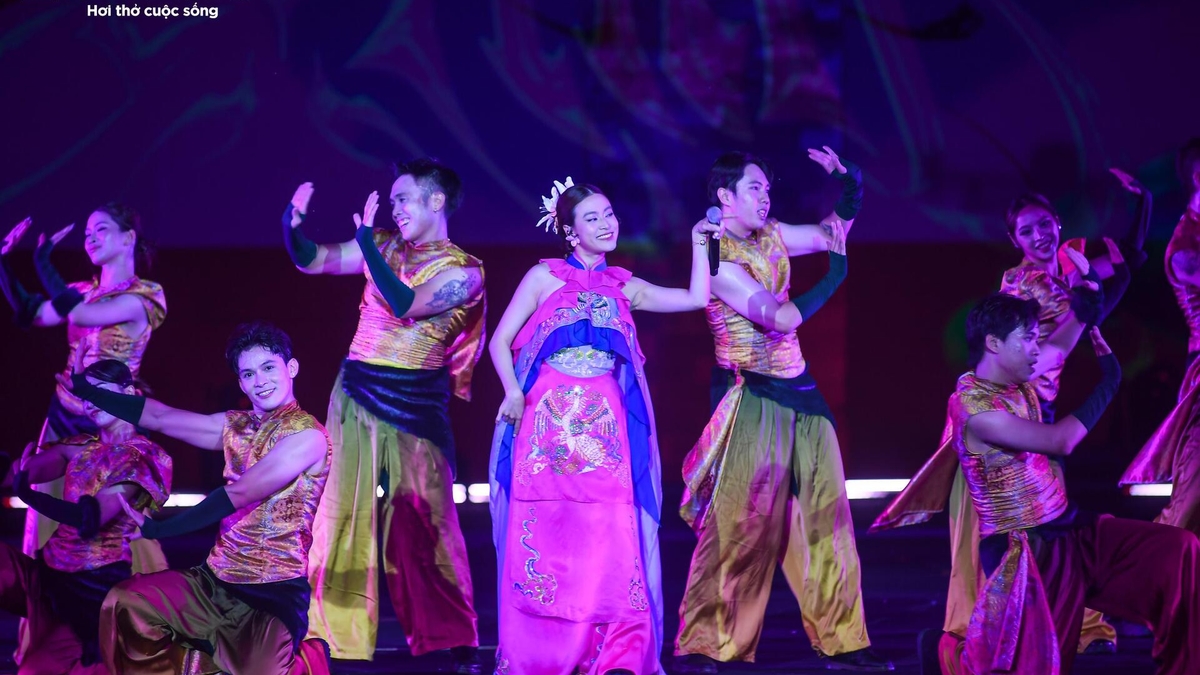










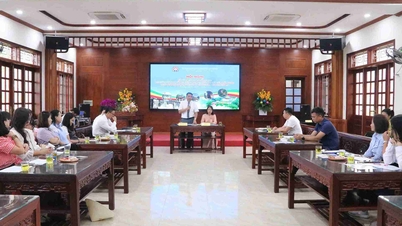












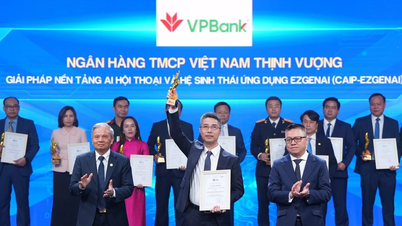


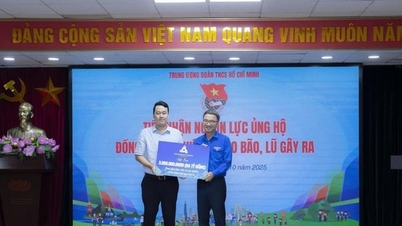

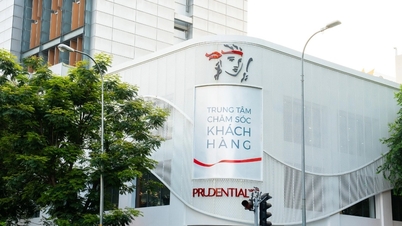
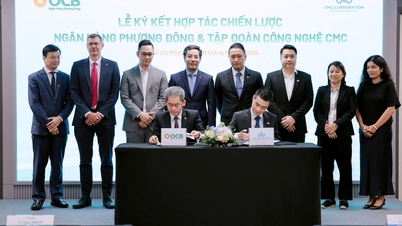









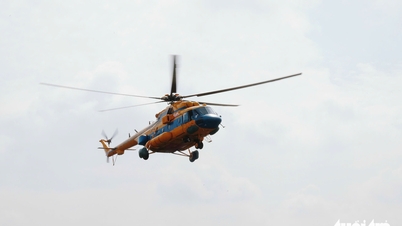


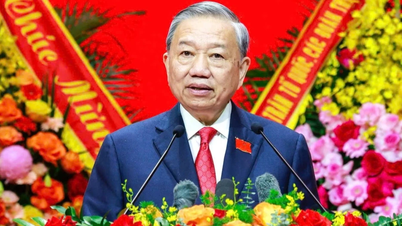
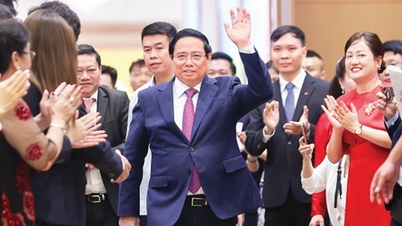

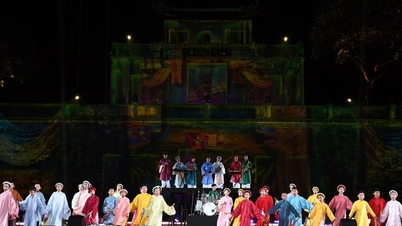

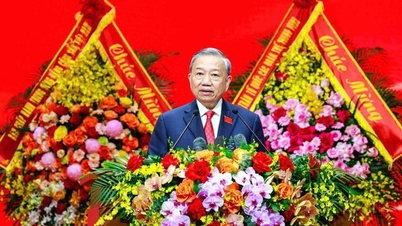
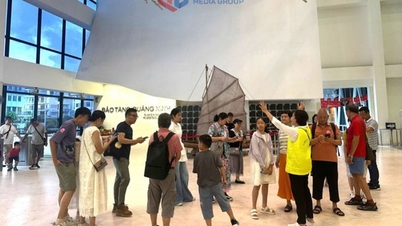
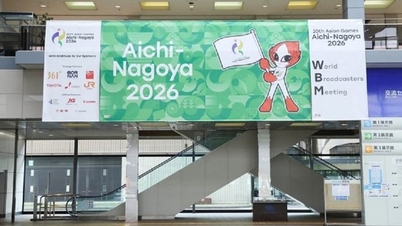


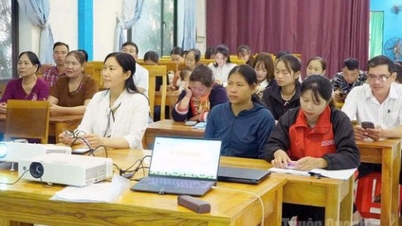
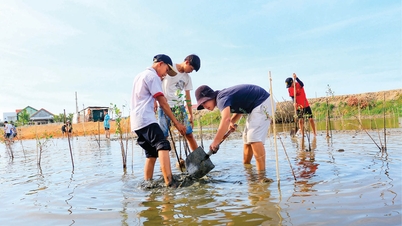



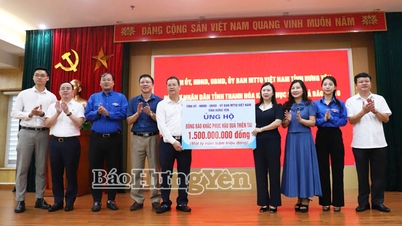


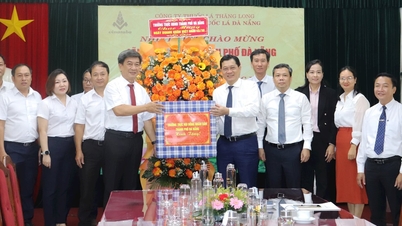

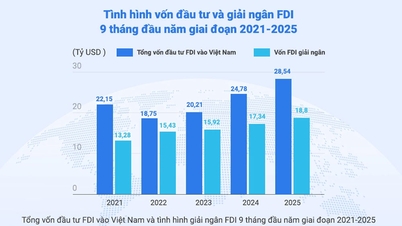










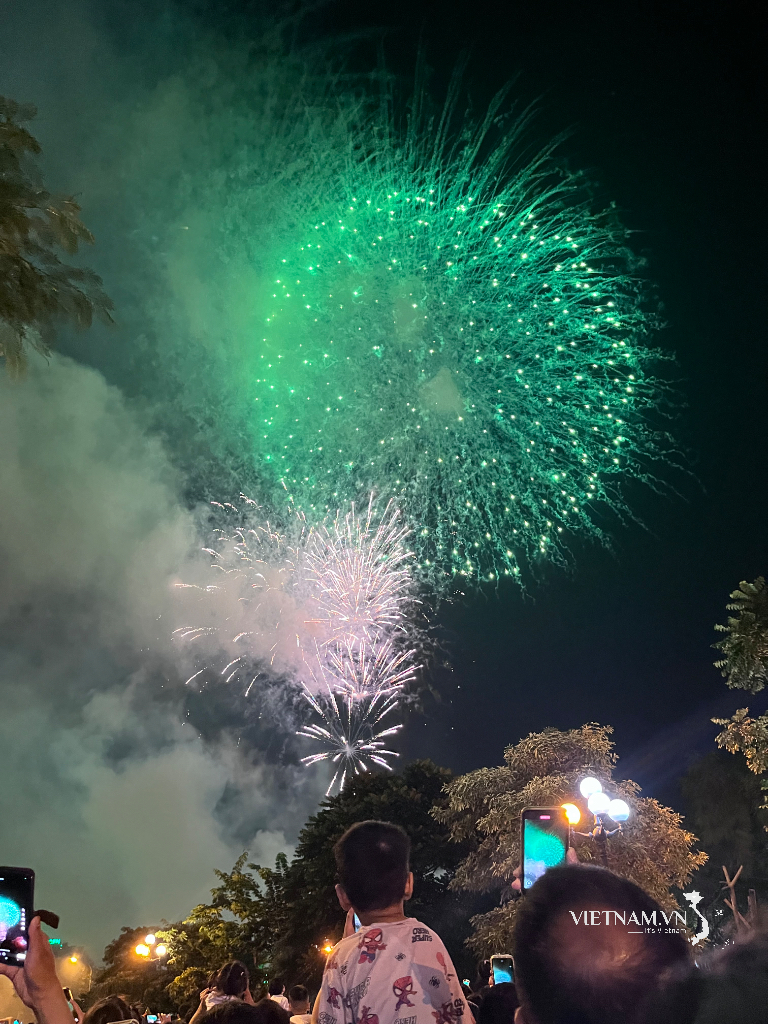



Comment (0)